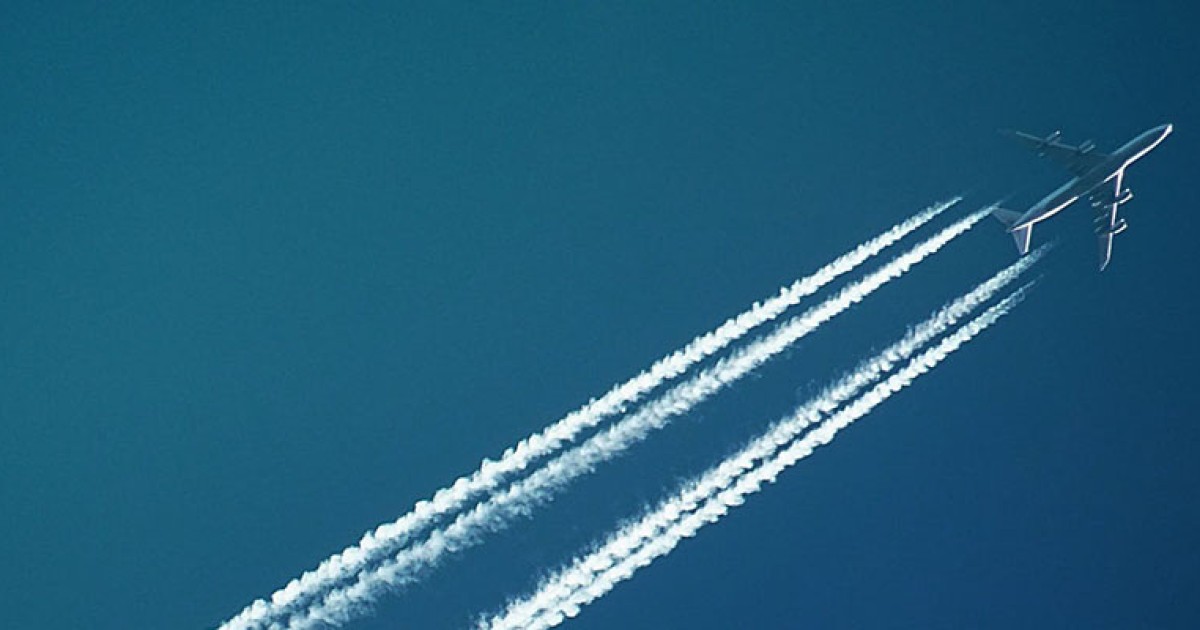University partners in £4.2m international project to reduce the climate impact of air travel

An international project has launched to study the impacts of aviation’s non-carbon dioxide emissions on air quality and climate, and how to reduce these environmental impacts.
The £4.2 million project, PACIFIC (Particle emissions, Air Quality and Climate Impact related to Fuel Composition and Engine Cycle), brings together partners from four European countries to look at ways to minimise the climate impact of non-carbon dioxide emissions.
Academics from Manchester Metropolitan University will focus on ground measurements of potential ice-nucleating particles in aircraft emissions (Airbus A350) as well as modelling the condensation trails (or contrails) produced by aircraft cruising altitudes where the atmosphere is cold and humid enough.
Contrails are made of ice crystals produced by the engine’s soot plus water emissions and can last for many hours. They can warm the atmosphere as they reflect the sun’s radiation back to space, cooling the atmosphere, but also trapping infrared radiation reflected from the Earth
Dr Simon Christie, Research Fellow at Manchester Metropolitan University, said: “Aviation fuel can affect contrail characteristics, which is important because contrails may have a large warming effect.
“In this project, we will be researching how different fuel properties impact the formation of contrails so we can minimise these effects.
“Over the next three-and-a-half years, the project will aim to improve understanding of contrail microphysics and modelling to better assess contrail properties and the broader impact of aviation, hopefully meaning in the future the climate impacts of contrails can be limited.”
Dr Christie is joined by Manchester Met’s Professor David Lee, Professor of Atmospheric Science, Aviation and Climate Research Group Leader, and Dr Ruben Rodriguez De Leon, Research Associate on the project.
Funded by Horizon Europe, PACIFIC will be coordinated by AIRBUS, with ten partners from industry, research, higher education and business.
Sabine Klauke, Airbus Chief Technology Officer, said: “Addressing aviation’s non-CO2 emissions is critical in our journey toward truly sustainable flight. Through collaborative science-based approaches and innovative technologies, we’re committed to minimising these effects while maintaining operational efficiency.
“The PACIFIC project will quantify and measure the non-CO2 emissions emitted from various SAF compositions. Using an innovative ground experiment process, we will be able to replicate conditions without delay and repeat them if needed. We look forward to the results of this multi-year project.”
PACIFIC has 100% funding rate from the European Commission. The project is the latest in Manchester Met’s ongoing research in understanding aircraft emissions and their effect on the climate.




